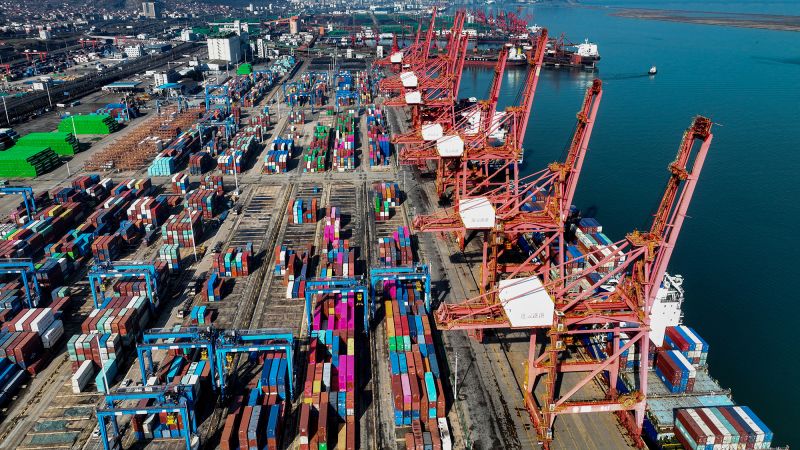China’s factories are producing more goods than its domestic market can support, leading to an oversupply of steel, cars, and solar panels that are being exported to foreign markets. This has caused tensions between China and major trading partners like the United States and European Union, with concerns over potential dumping of cheap goods by China. Despite the economic slowdown in China, the need to increase exports to revive the economy remains a priority, leading to a focus on higher-value exports and advanced manufacturing.
The global trade surplus in goods for China has nearly reached $1 trillion, with concerns raised by the EU about industries in Europe being priced out of the market due to Chinese competition. The push by European and American consumers to reduce dependence on Chinese goods and boost local manufacturing has led to further challenges for China’s export strategy. Beijing’s investments into advanced manufacturing have come at a time of slower economic growth globally and changing consumer spending patterns, making it difficult for China to find markets for its higher-value exports.
China’s dominance in key industries such as electric vehicles, solar panels, and wind turbines has caused disruptions in global markets, with European companies in the solar panel and wind industries struggling against Chinese competition. China’s advanced manufacturing capacity and policy emphasis on exporting EVs, lithium batteries, and solar panels have only exacerbated concerns of overcapacity in various sectors, including chemicals and metals. The acknowledgement of the overcapacity issue by Chinese officials marks a shift in policy, but challenges persist.
The United States and the EU are taking steps to investigate potential threats to national security posed by Chinese exports, particularly in the auto industry. Concerns over China’s state support for EV makers and suspicions of unfair competition are prompting the EU to consider extending measures to safeguard its steel industry and investigating allegations of biodiesel dumping by China. These trade tensions are likely to persist, and China has responded by filing complaints with the WTO and opening its own anti-dumping investigations, indicating a looming trade conflict.
Despite the potential benefits of China’s oversupply in keeping prices low and inflation in check, the persistence of these issues could lead to increased geopolitical tensions and the threat of tariffs and counter-tariffs. The impact of China’s influence on global trade is significant, with potential implications for inflation in the years ahead. The rivalry between China and its major trading partners is likely to continue, with implications for industries and economies worldwide. The evolving dynamics in global trade present challenges and opportunities for all parties involved.
In conclusion, China’s export strategy and overcapacity in key industries have created tensions with major trading partners like the US and EU. The dominance of Chinese goods in global markets has led to concerns over dumping, unfair competition, and threats to national security. As China focuses on higher-value exports, challenges related to competition, overcapacity, and geopolitical tensions are likely to persist. The evolving dynamics in global trade require collaborative efforts to address issues related to China’s influence and ensure fair and sustainable trade practices.


